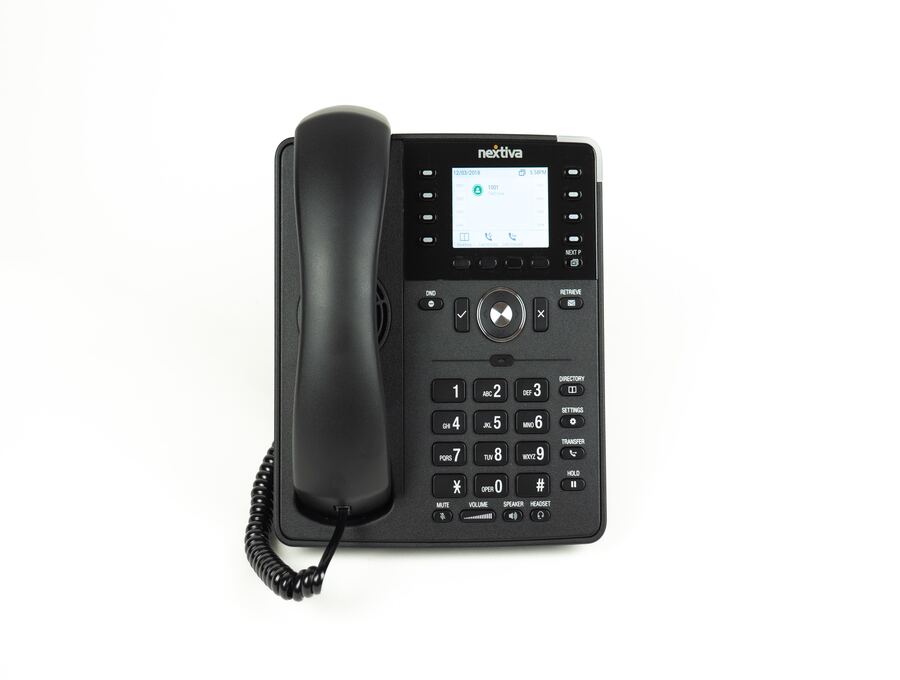Are you tired of paying ridiculously high fees for long-distance calls? If so, it’s time to switch to Voice over Internet Protocol (VoIP) phone systems. With the rise of internet-based communication technology, VoIP has become a popular alternative to traditional landline phones. Not only does it offer crystal clear voice quality and advanced features, but it can also save you money on long-distance calls. In this blog post, we’ll explore how VoIP works and the benefits of using it as your primary phone system. We’ll also provide some tips on how to set up your own VoIP phone system and recommend the best providers in the market. Let’s dive in!
What is VoIP?
VoIP stands for Voice over Internet Protocol. It’s a technology that allows you to make phone calls over the internet instead of using traditional landlines. With VoIP, your voice is converted into digital data and transmitted through the internet to the recipient’s device as audio signals.
One of the main benefits of VoIP is that it’s much cheaper than traditional phone systems. Since VoIP uses the internet to transmit calls, there are no long-distance charges or per-minute fees associated with making long-distance calls.
Another advantage of VoIP is its flexibility and scalability. You can use any device with an internet connection, such as a smartphone, tablet or computer, to make and receive calls from anywhere in the world.
VoIP also comes packed with advanced features like call forwarding, voicemail-to-email transcription, video conferencing and virtual attendants which help businesses save time while increasing productivity.
VoIP has revolutionized telecommunications by offering affordable and reliable communication services over an existing network infrastructure – The Web!
How does VoIP work?
VoIP, or Voice over Internet Protocol, is a technology that allows users to make phone calls using the internet rather than traditional phone lines. When you make a call using VoIP, your voice is converted into digital data and transmitted over the internet to the person you are calling.
To use VoIP, you need an internet connection and a device capable of making calls through the internet. This can be a computer, tablet or smartphone with VoIP software installed on it.
VoIP works by breaking down your voice into small packets of data and sending them across the network to their destination. The packets are then reassembled at the other end so that the person receiving your call can hear what you are saying.
Because VoIP uses packet switching instead of circuit switching like traditional phone systems, it can handle multiple conversations at once without any loss in quality. This makes it ideal for businesses or households where multiple people may need to make calls simultaneously.
VoIP offers many benefits over traditional phone systems including lower costs and greater flexibility. With its ability to transmit high-quality audio over long distances without expensive infrastructure requirements, more people are turning towards this modern technology for their communication needs.
The benefits of using VoIP
VoIP systems offer numerous benefits that can help businesses save money and streamline their communication processes. One of the main advantages of using VoIP is cost-effectiveness. Traditional phone systems often come with high long-distance calling fees, but with VoIP, users can make long-distance calls at a fraction of the cost.
Another benefit of using VoIP is its flexibility and scalability. It allows businesses to add or remove lines easily according to their needs without having to worry about significant infrastructure changes. Additionally, employees can use VoIP from anywhere in the world as long as they have an internet connection.
VoIP also provides advanced features such as call forwarding, voicemail transcription, video conferencing and more at no extra charge. These features significantly enhance productivity by allowing employees to communicate effectively while working remotely or during times when face-to-face meetings are not possible.
Moreover, VoIP is highly reliable due to its redundancy feature which means that there will always be backup communication paths even if one goes down.
There are numerous benefits associated with using a VoIP system for your business including cost-savings on long-distance calls and enhanced productivity through advanced features so it’s worth considering implementing it into your organization’s communication strategy.
How to set up a VoIP system
Setting up a VoIP system is straightforward, and you don’t need any technical knowledge to do it. First, determine your needs, including the number of users and lines required. Next, select a VoIP provider that meets those needs.
Once you have chosen a provider, sign up for their service and choose your preferred plan. After that, decide on the type of hardware you want to use with your VoIP system. You can either use physical phones or softphones (software-based applications installed on computers).
If you opt for physical phones, purchase them from reputable vendors such as Polycom or Cisco. Ensure they are compatible with the VoIP service provider you’ve chosen.
For softphones, download and install the application onto each computer in your office where employees will be using them.
Configure your new VoIP system by following instructions from both the hardware vendor and service provider. This includes setting up user accounts and assigning phone numbers.
With these simple steps completed successfully; Your business will be ready to enjoy all benefits that come along with using a modern communication solution like VoIP!
The best VoIP providers
When it comes to choosing the best VoIP provider, there are several factors to consider. First and foremost, you want a reliable service that offers clear call quality with minimal disruptions. You also want a provider that is affordable and has flexible pricing plans.
One of the top VoIP providers in the market today is Vonage. They offer competitive pricing plans for businesses of all sizes, along with features like voicemail transcription, call recording and virtual receptionist services.
Another great option is RingCentral, which provides comprehensive communication solutions for businesses. With features like team messaging, video conferencing and online faxing capabilities, they make collaboration easy.
Nextiva is another popular choice for businesses due to their user-friendly interface and excellent customer support. Their service includes advanced call routing options and integration with popular CRM software.
Ultimately, the best VoIP provider will depend on your specific business needs and budget. It’s important to do your research and compare different providers before making a decision.
How to choose a VoIP provider
When choosing a VoIP provider, there are several factors to consider. First and foremost, you should look at the features offered by different providers and determine which ones align with your business needs.
Another important consideration is pricing. Some providers offer flat-rate plans while others charge based on usage. It’s important to evaluate your call volume and choose a plan that will save you money in the long run.
Customer support is also crucial when selecting a VoIP provider. Look for companies that offer 24/7 technical assistance and have positive customer reviews.
It’s also worth considering the reliability of each provider’s network. A provider with frequent downtime or dropped calls can be detrimental to your business operations.
Check for any additional fees or hidden costs associated with signing up for a service plan. Providers may charge for equipment rental, installation fees, or cancellation charges.
By carefully evaluating these factors, you can select a VoIP provider that meets your specific needs and saves you money in the long run.
Conclusion
VoIP systems offer a cost-effective solution for businesses looking to save money on long-distance calls. By switching over to VoIP, you can enjoy a range of benefits, including lower costs, improved call quality and flexibility.
When it comes to setting up your VoIP system, make sure you choose the right provider that caters to your business needs and budget. Keep in mind factors such as number of users, call volume and required features when selecting the best provider for your business.
Making the switch to VoIP is a smart investment for any business looking to reduce their communication costs while improving their overall calling experience. So why not take advantage of this technology today?




